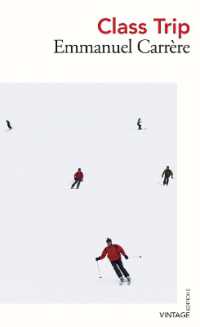Full Description
The Developing Core Literacy Proficiencies program is an integrated set of English Language Arts/Literacy units spanning grades 6-12 that provide student-centered instruction on a set of literacy proficiencies at the heart of the Common Core State Standards (CCSS).
Reading Closely for Textual Details
Making Evidence-Based Claims
Making Evidence-Based Claims about Literary Technique (Grades 9-12)
Researching to Deepen Understanding
Building Evidence-Based Arguments
The program approaches literacy through the development of knowledge, literacy skills, and academic habits. Throughout the activities, students develop their literacy along these three paths in an integrated, engaging, and empowering way.
Knowledge: The texts and topics students encounter in the program have been carefully selected to expose them to rich and varied ideas and perspectives of cultural significance. These texts not only equip students with key ideas for participating knowledgeably in the important discussions of our time, but also contain the complexity of expression necessary for developing college- and career-ready literacy skills.
Literacy Skills: The program articulates and targets instruction and assessment on twenty CCSS-aligned literacy skills ranging from "making inferences" to "reflecting critically." Students focus on this set of twenty skills throughout the year and program, continually applying them in new and more sophisticated ways.
Academic Habits: The program articulates twelve academic habits for students to develop, apply, and extend as they progress through the sequence of instruction. Instructional notes allow teachers to introduce and discuss academic habits such as "preparing" and "completing tasks" that are essential to students' success in the classroom.
The program materials include a comprehensive set of instructional sequences, teacher notes, handouts, assessments, rubrics, and graphic organizers designed to support students with a diversity of educational experiences and needs. The integrated assessment system, centered around the literacy skills and academic habits, allows for the coherent evaluation of student literacy development over the course of the year and vertically across all grade levels.
Contents
Acknowledgments v Introduction to Developing Core Literacy Proficiencies: Becoming a Literate Person ix
Unit 1: Reading Closely for Textual Details: "A wall of separation" 1
Goal 2
Topic 2
Activities 2
Reading Closely for Textual Details Unit Texts 5
Text 1 Engraving 7
Text 2 First Amendment to the United States Constitution 8
Text 2b Letter to the Danbury Baptist, Thomas Jefferson 8
Text 3 "God in America", PBS 10
Text 4 God in America, PBS 10
Text 5 Santa Fe Independent School District V. Doe, Justic Stevens 11
Text 6 Santa Fe Independent School District V. Doe, Justic Stevens, Chief Justic Rehnquist 18
Text 7 Address to the Greater Houston Ministerial Association, Senator John F. Kennedy 23
Text 8 Union Square Speech, Dorothy Day 26
Text 9 Democracy in America, Alexis de Tocqueville 28
Reading Closely for Textual Details: Literacy Toolbox 44
Unit 1b: Reading Closely for Textual Details—Additional Text Set: "And Life steps almost straight" 87
Goal 88
Topic 88
Activities 88
Reading Closely for Textual Details Unit Texts 90
Text 1 Visuals on the subject of human nature 92
Text 2 A Case for a Tragic Optimism (postscript to Man's Search for Meaning) 94
Text 3 Viktor Frankl and Man's Search for Meaning (video), Viktor Frankl 96
Text 4 Time-Life Photos, Time 96
Text 5 "Thirst", The Buddha 97
Text 6 "We Grow Accustomed to the Dark", Emily Dickinson 101
Text 7 "The Examined Life" (excerpt), Cornel West 103
Text 8 Meditations on First Philosophy (excerpt), René Descartes 105
Text 9 The Genealogy of Morals (excerpt), Friedrich Nietzsche 107
Reading Closely for Textual Details: Literacy Toolbox 112
Unit 2: Making Evidence-Based Claims: "We have every right to dream heroic dreams" 153
Goal 154
Topic 154
Activities 154
Making Evidence-Based Claims Unit Texts 157
Text 1 First Inaugural Address President Ronald Reagan 157
Text 2 Remarks to the APEC Women and the Economy Summit, Secretary Hillary Clinton 165
Making Evidence-Based Claims: Literacy Toolbox 176
Unit 3: Making Evidence-Based Claims about Literary Technique: "I could hear everyone's heart." 219
Goal 220
Topic 220
Activities 220
Making Evidence-Based Claims about Literary Technique Unit Text
What We Talk about When We Talk about Love: Raymond Carver 224
Making Evidence-Based Claims about Literary Technique: Literacy Toolbox 240
Unit 4: Researching to Deepen Understanding: "Design: How does it influence innovation and progress?" 283
Goal 284
Topic 284
Activities 284
Terms and Definitions Used in This Unit 284
Researching to Deepen Understanding Common Source Set 289
Researching to Deepen Understanding: Literacy Toolbox 294
Unit 5: Building Evidence-Based Arguments: "Do to others as you would have them do to you" 363
Goal 364
Topic 364
Activities 364
Building Evidence-Based Arguments Unit Texts 367
Building Evidence-Based Arguments: Literacy Toolbox 369
All materials from the Literacy Toolbox are available as editable and printable PDFs at
www.wiley.com/go/coreliteracy. Use the following password: odell2016.



![CDリスニング要件・効果 〈8〉 会社法 [CD+テキスト] (第3版)](../images/goods/ar2/web/imgdata2/49102/4910294031.jpg)




